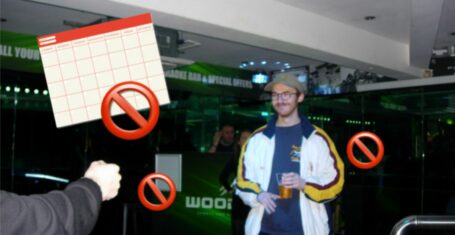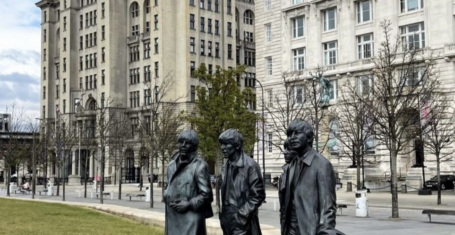
Why students should care about the Kitchen Street situation
A planning application to build 200 apartments near the club was passed by an almost unanimous council vote
Almost a year since festive cheer was spoiled by the Kazimier closing, Liverpool’s underground nightlife yet again finds one of its lynch pin (and much beloved) venues, 24 Kitchen Street, threatened by a planning application.
The case of 24KS is a striking example of a wider theme within British cities, where nightlife is brushed aside and treated as an obstacle, rather than intrinsic to urban cultural development and vital to a city’s vibrancy.
The now-passed planning application, by Songbird, proposes a set of apartment blocks containing 200 units to be built on land between Blundell Street, Kitchen Street and Simpson Street.
Kitchen Street raised major concerns that the buildings proposed wouldn’t be sufficiently soundproofed, and that the initial noise assessment was inadequate, not looking into noise levels at closing time (noisy punters tend to generate more complaints than loud bass) and assuming the club’s much loved smoking yard closes earlier than it in fact does.
In the meeting on the 20th December, Liverpool Councillors’ responses appeared ignorant of cultural concerns and condescending towards the venues (and people) concerned. Similar to Councillor Hetty Wood’s tweeted comments that the “simple hashtag” #savekitchenstreet was “disingenuous for the present circumstances”, in the hearing 24 Kitchen Street’s worries seemed inadequately addressed.
The meeting appeared very much more interested in complying with the developers than maintaining a level playing field for 24KS. A proposed reduction in the Section 106 payment to help the builders afford further insulation was rejected. The suggestion of further insulation acknowledges there are flaws with the proposals, although several Councillors who proposed this voted through the application anyway, despite it being apparent the subsidy wouldn’t be granted.
Students of all the city’s universities and colleges are the most prominent beneficiaries of Liverpool’s nightlife. For many of us its cultural significance is one of the key factors in coming here: Liverpool is almost synonymous with music, and the North-West has numerous fertile underground music scenes. As many of us tend to leave after three years, the wider cultural significance of places like 24KS can be lost to the fact it is simply one of the best nights out to be had in the city. There’s nothing like swaying beneath the disco ball to Submotion Orchestra one day, finding your groove at Hot Plate another, then returning a few days later to get very 2007 at Shit Indie Disco.
Kitchen Street is a well run, safe place with a distinct commitment to providing space for a wide variety of arts, from theatre to Jazz, from Noise Rock to Reggae. It’s also a brilliantly small venue which touring acts who would not necessarily sell out the city’s larger venues can fill up, making the city more attractive to play. This helps small local acts as it means they can play with bigger acts to bigger crowds than they’d normally attract. That an event taking place at 24KS is often enough of a reason to go, without specifically knowing the act, speaks of its significance as a venue and the credence it lends to events it holds.
The cultural capital of 24KS and the rest of the Baltic triangle also makes it attractive to investors, who can exploit its vitality for profit. It’s all so SoDoSoPa – “living next to one of Liverpool’s vital cultural hotspots will make you cool too”. Just like Dalston and Peckham in London, the industrial landscape of the Baltic has become a bubble first for creative industries, but all too soon appeals to the big-buck developers.
This cultural capital can become an areas downfall. One of the arguments made in the overlooking of 24KS’s concerns was that the proposal was about balancing the needs of local culture against those of developers to help ‘coexistence’. Building up this conflict between the two presents night culture as standing in the way of urban development, meaning the needs of clubs are curtailed in favour of developers as the little guy, the venues, find themselves overlooked and overshadowed by the bigger sums offered up from developers.
Whilst venues and clubs need to have a dialogue with city planners, and 24KS has made efforts to do this, the response has simply treated these concerns as obstacles to development. Words of support have not been fully supported by actions as of yet. It seems yesterday’s committee remained unconcerned by the similarity of the proposals to other cases where nightclubs have ended up closing. Let’s hope the planners and the council are able to converse with 24KS and concerns in order to do the utmost to maintain the creative freedom of the Baltic Triangle. A visit to the site should be a first port of call.
The battle to save Kitchen Street is very much a community fight: those in support of 24KS need to make their voices heard if ears seem deaf to the tune they’re singing.









































